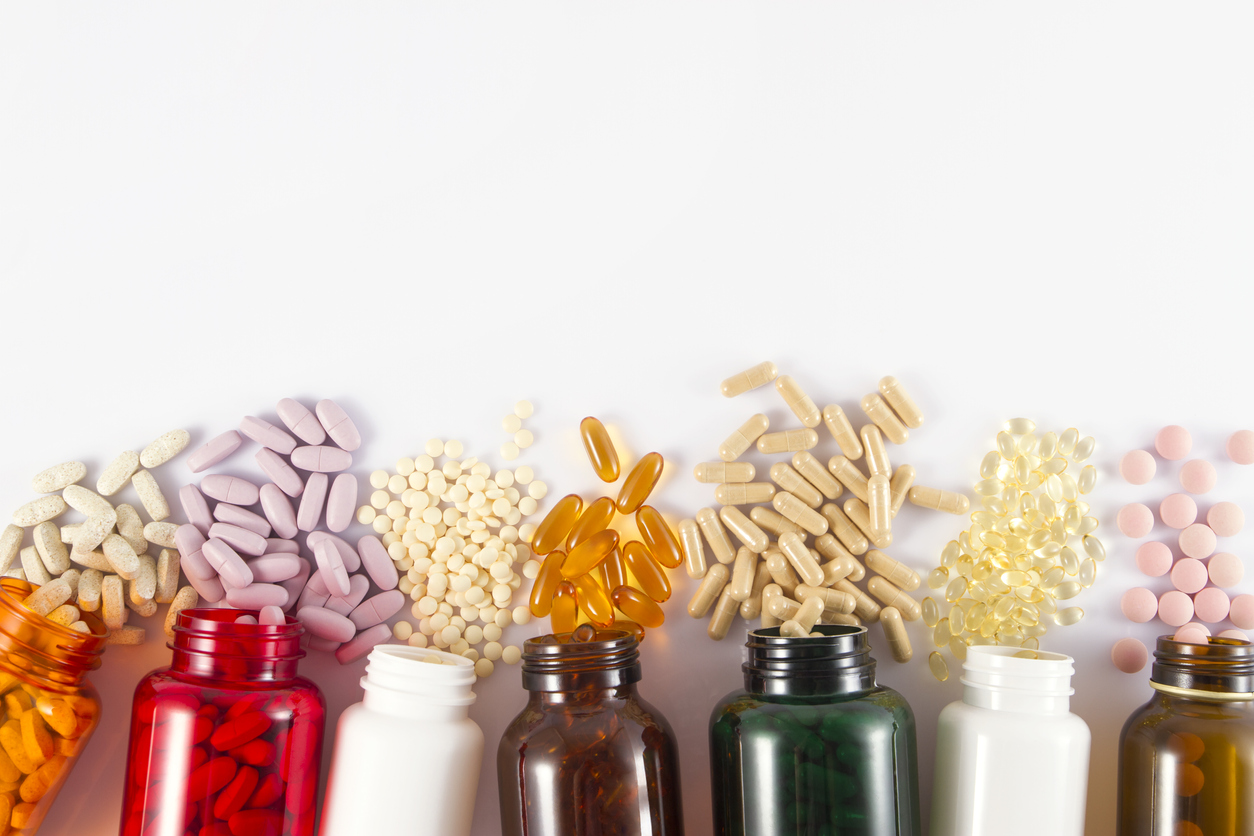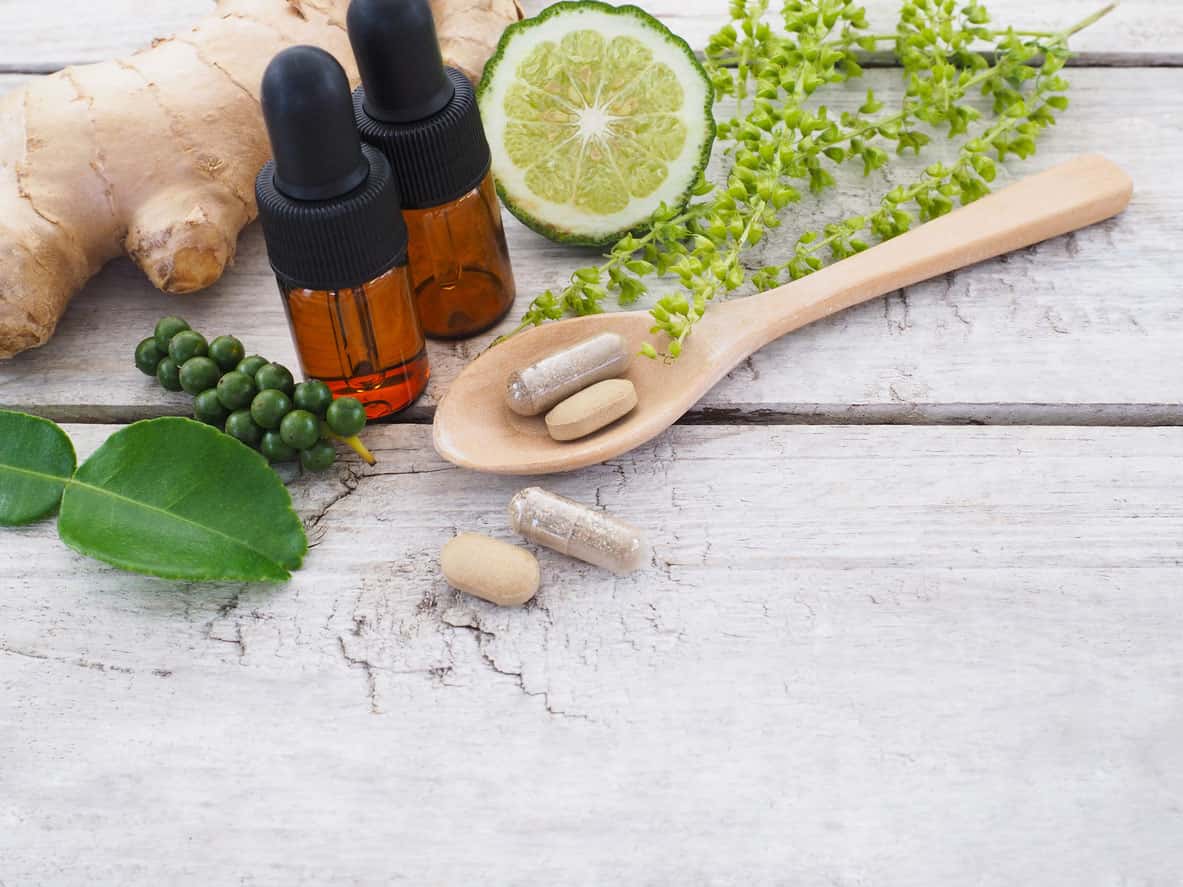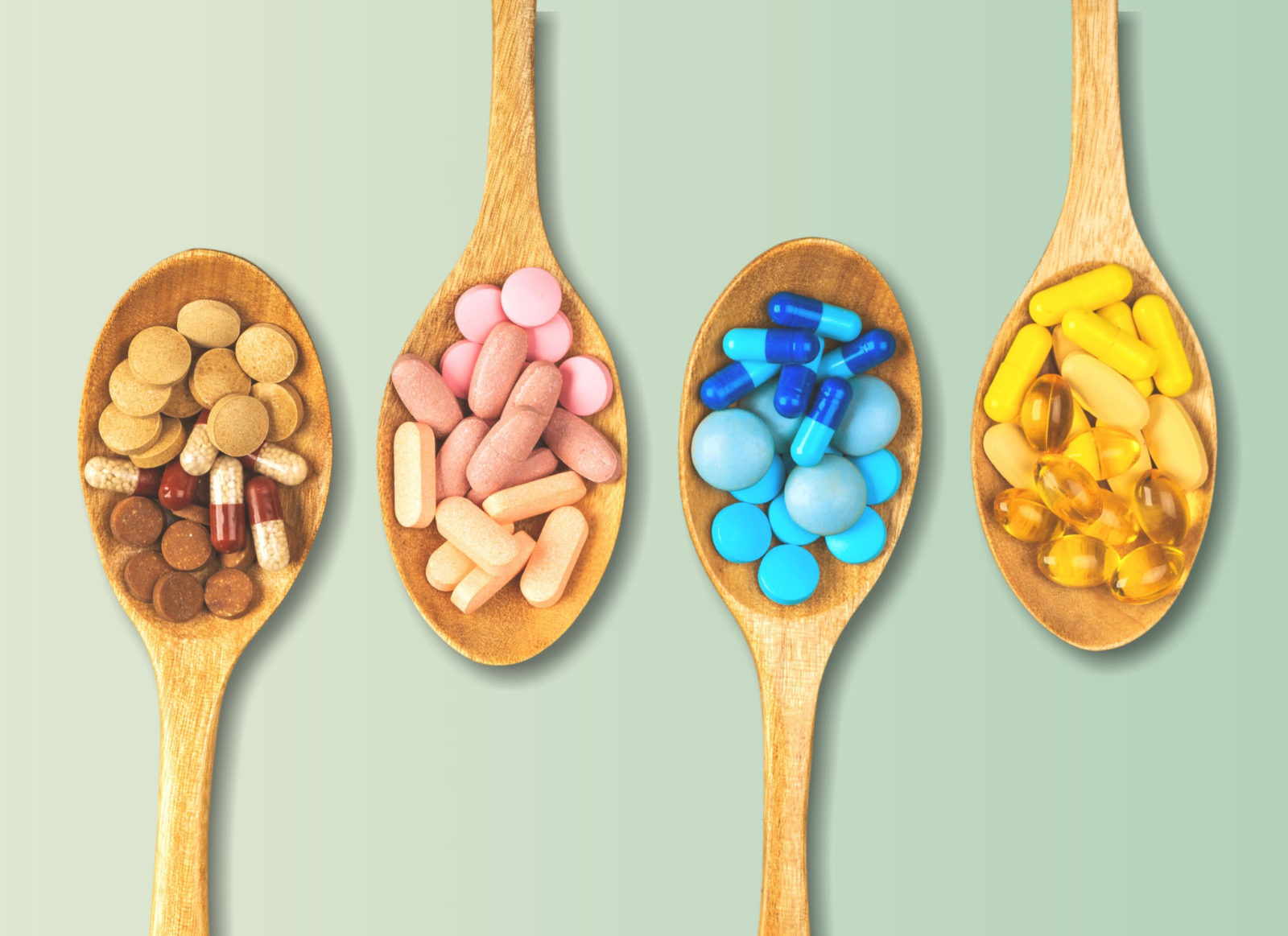If you’ve been suffering from symptoms such as bloating, abdominal pain, diarrhea, constipation, joint pain, nausea and headache or brain fog, you are not alone. Maybe you’re one of the millions of people who have non-celiac gluten sensitivity (NCGS), also known as gluten intolerance.
According to beyondceliac.org, up to 6 percent of Americans could have NCGS. That may not seem like a lot, but when you do the actual numbers, that’s 18 million Americans.
To make matters worse, many people experiencing the symptoms of NCGS may have been able to consume gluten-containing products for years without discomfort. Then, without warning, the problems start.
As registered dietician Erica Kannall at SFGate.com explains why: “It’s likely that you have carried a gene for gluten intolerance without knowing it and something in your life triggered the gene to be expressed.”
What Gluten Is and Which Foods Contain It
Simply put, gluten is a natural mixture of hundreds of distinct proteins in cereal grains. The three grains that are most common in an everyday diet are wheat, barley and rye.
Wheat is an annual grass and is one of the top three crops grown all over the world. While it’s obvious that wheat can be found in most flours, breads, baked goods (cookies, cakes and pastries), pizza, pasta, cereals and battered foods, there are other foods containing wheat that might surprise you. If you read labels in the supermarket aisles, you already know wheat is almost omnipresent. Foods containing “hidden” wheat include:
- Canned soups
- Vegetables prepared in a sauce
- Soy sauce
- Worcestershire
- Teriyaki
- Horseradish sauce
- Spices
- Condiments
- Salad dressings
- Sausages and other prepared meats
- Sweets such as licorice, chocolate and chewing gum.
Barley appears often in soups and stews, but there are many ingredients in everyday foods derived from barley. These include:
- Brown rice syrup
- Caramel color
- Malt or malt flavoring
- Malt vinegar
- Maltose
Rye can also be found in many common foods, including breads, cereals and crackers.
What Mild Gluten Sensitivity Looks Like
There are many different signs and symptoms of sensitivity to gluten-carrying grains. But most of the time, they aren’t severe, or even all that different from the aches and pains of daily living. Instead, people experiencing NCGS are often puzzled by minor discomfort that they may write off as just the way their bodies work.
According to HealthLine.com, these symptoms can appear singly, or as several or all of the following in any combination:
- Bloating
- Diarrhea, constipation, smelly feces and other gastrointestinal problems
- Abdominal pain
- Headaches
- Fatigue
- Skin problems
- Depression
- Unexplained weight loss
- Iron-deficiency anemia
- Anxiety
- Autoimmune disorders
- Joint and muscle pain
- Leg or arm numbness
- Brain fog
Of these many potential symptoms, digestive distress is often the most common, particularly when the problems persist over many or most days. Bloating, diarrhea, and constipation typically top the lists of concerns for someone with gluten sensitivity. In addition, if symptoms such as headaches, fatigue, and brain fog occur soon after consumption of gluten foods, then NCGS may in fact be the underlying issue.
Why People Develop Gluten Sensitivity
Another reason people may not connect symptoms with gluten sensitivity is quite simple: They’ve been eating gluten foods all their lives without incident. Why should these grains cause problems now?
The answer, on the other hand, is fairly complicated. While human beings in general have been eating grains for centuries, our species has never eaten so much grain. Furthermore, the grains themselves, particularly wheat, are not the same as what our ancestors consumed. Researchers have a number of theories explaining why these differences may be affecting us so dramatically.
First, genetic engineering has altered the wheat seed to create crops that are more drought-resistant and more easily lend themselves to baking. Our digestive systems haven’t had time to adapt to these changes as quickly as they’ve been made.
Second, some studies suggest that we aren’t fully digesting the wheat that we eat, leaving undigested wheat particles in our intestines. If these particles are big enough, they can damage the intestinal lining. Our immune systems register these particles as “invaders,” and attack them with an immune response that, to us, feels like bloating, cramping, brain fog, etc.
Third, the standard American diet is fairly vitamin-deficient, and bodies without adequate vitamin intake generally have weaker immune systems that either cannot respond adequately to threats or over-respond to threats. The result is discomfort for us.
It’s unlikely that a person would develop gluten sensitivity overnight. Rather, our bodies may cope with this discomfort for a long time without notice. However, if the immune response becomes too strong, the symptoms will become a more obvious problem.
It’s important to note that research into gluten sensitivity is both complex and ongoing. Working with knowledgeable, up-to-date providers, such as BodyLogicMD network physicians, can help you pin down the source of your symptoms with more accuracy.
Why Gluten Intolerance and Gluten Sensitivity Are Different
As you explore gluten sensitivity, keep in mind that NCGS and gluten intolerance, also known as celiac disease, are not the same things.
Genetics play a role in developing celiac disease which is an autoimmune disorder that occurs in reaction to the ingestion of gluten. According to Gluten.org, to develop celiac disease, a person must inherit the genetic predisposition, be consuming gluten, and have the disease activated. The only relief can be found in eliminating gluten. A person with celiac disease who fails to give up eating gluten will incur specific damage to the digestive system, namely the villi, the small fingerlike projections that line the small intestine and promote nutrient absorption.
Non-celiac gluten sensitivity does not have the same genetic underpinnings, or cause the same damage, as celiac disease. In fact, researchers have thought that people sensitive to gluten only experienced symptoms and did not have any intestinal damage. But new research indicates those with gluten sensitivity might also have a systemic immune reaction and accompanying intestinal cell damage.
At the same time, NCGS is not the same as an allergic reaction to wheat, although the symptoms can be similar.
A wheat allergy is a reaction by your immune system to any of the hundreds of proteins in wheat. A person living with a wheat allergy must stay away from eating any form of wheat but can tolerate gluten from non-wheat sources. However, for a person with an allergy, the consequences of consuming wheat are serious and may even be life-threatening. Those consequences include nausea, abdominal pain, itching, swelling of the lips and tongue, trouble breathing, or anaphylaxis.
For those with a wheat allergy, wheat must be eliminated altogether.
Seeking a Gluten Sensitivity Diagnosis
Believe it or not, those who have celiac disease have it easy when it comes to a diagnosis compared with those who have non-celiac gluten sensitivity. A simple blood test shows those with celiac disease to have higher than normal levels of immunoglobulin E (IgE) antibodies in their blood. The immune system produces antibodies because it views gluten (the proteins found in wheat, rye and barley) as a foreign invader, or a threat.
There are no specific medical tests that can be performed to confirm NCGS. Instead, medical practitioners conduct a “rule-out” diagnosis. According to the Free Medical Dictionary, a “rule-out” diagnosis is used to eliminate or exclude diagnostic possibilities from the list of possible causes suggested by a patient’s presenting signs and symptoms.
Those who have NCGS lack the antibodies that show up in a blood test for celiac disease. Nonetheless, a blood test is required to make sure you are not suffering from celiac disease, wheat allergies and, potentially, gluten ataxia―a rare and newly defined syndrome that involves a mistaken attack on your cerebellum by your own disease-fighting white blood cells, spurred on by gluten ingestion.
Blood tests that are more detailed than the one used to confirm celiac disease can be used to rule out a wheat allergy. A skin prick test may also be used to confirm or rule out wheat allergy.
On your forearm or upper back, tiny drops of a purified allergen are pricked onto your skin’s surface. After roughly 15 minutes, your practitioner will look to see if there are any signs of an allergic reactions. If red, itchy bumps develop where the wheat protein extract was pricked onto your skin, you may have a wheat allergy.
In addition, your healthcare provider may ask you to keep a food diary, detailing what you eat along with any symptoms you are experiencing following meals and snacks.
Understanding FODMAPS
To make matters even more confusing, while you may have reached a conclusion that you are, in fact, sensitive to gluten, your symptoms might actually be caused by something called FODMAPs.
The health professionals at BodyLogicMD are aware of new research that shows up to 70 percent of people suffering from irritable bowel syndrome may have problems digesting fructans and other nutrients from a food group known as FODMAPs, or fermentable oligosaccharides, disaccharides, monosaccharides and polyols.
FODMAPs draw in water and are fermented in the large intestine by gas-producing bacteria, causing the gut to stretch slightly.
Recent research also indicates that, for some people, consuming FODMAPs and gluten together can make symptoms worse, However, folks mostly sensitive to FODMAPs may be able to safely consume some gluten-containing foods.
Treating Non-Celiac Gluten Sensitivity
If you’re wondering why you are suffering from those symptoms commonly associated with NCGS and no one can help you put your finger on the cause, the dedicated medical professionals at BodyLogicMD have the knowledge and experience to help you separate the wheat from the chaff — or get rid of the wheat entirely.
Once more serious diagnoses are ruled out, the first step is an elimination diet, during which gluten-containing foods are eliminated from your diet and you are monitored to see if and how your health improves.
When that step is complete, you will undergo an “open challenge,” during which the reintroduction of gluten-containing foods is used to isolate the causes of your distress.
If your healthcare practitioner determines you are sensitive to gluten or wheat, he or she will work with you in developing a dietary plan that is simple and easy to stick to. Once you implement the plan, you should begin to experience relief from your symptoms.
Discovering Gluten-Free Foods
For those of us raised on wheat products and other foods containing gluten―breads, pasta and noodles, crackers, and other snacks such as pretzels, and even beer―a gluten-free lifestyle might seem unimaginable. However, we have to remember that the goal is to manage the symptoms of irritable bowel syndrome, itchy skin, headaches, anxiety, depression, aching joints and general fatigue.
And while you might have to eliminate wheat, barley, rye and foods containing gluten, it doesn’t mean your daily meals have to be bland, boring, and unappetizing. There are many products available to help satisfy your cravings with gluten-free baked goods, gluten-free noodles and macaroni, and even gluten-free beer, as well as other gluten-free products.
Gluten-free meals run the gamut from pizza with kale pesto to creamy butter chicken. Buckwheat, a plant related to sorrel that is neither a wheat nor a grass, produces seeds that are rich in complex carbohydrates, without any of the gluten. Many gluten-free products are made from buckwheat, such as pasta, risotto, waffles, muesli, and bread. Other grains without gluten include:
- Amaranth
- Brown, white and wild rice
- Buckwheat
- Almond meal flour
- Coconut flour
- Corn
- Cornstarch
- Guar gum
- Millet
- Pea flour
- Potato flour
- Potatoes
- Quinoa
- Sorghum
- Soy flour
- Teff
However, all grains should be researched thoroughly as they run the risk of “cross-contact”―that is, coming into contact with gluten foods. Sometimes different grains are grown near each other or processed in the same plants with the same machinery. Truly gluten-free grains are labeled as such and certified gluten-free by a third party.
At this point in the evolution of the gluten-free marketplace, you can find a gluten-free version of almost any wheat-based product, often without sacrificing flavor or texture. Even better, gluten-free diets typically rely on foods that deliver greater nutritional value to you. As DrPerlmutter.com explains, these foods can include:
- Healthy fat: extra virgin olive oil, sesame oil, grass-fed tallow and organic or pasture-fed butter, ghee, almond milk, avocados, coconuts, olives, nuts and nut butters, and seeds (flaxseed, sunflower seeds, pumpkin seeds, sesame seeds, chia seeds).
- Protein: whole eggs; wild fish (salmon, black cod, mahi mahi, grouper, herring, trout, sardines); shellfish and mollusks (shrimp, crab, lobster, mussels, clams, oysters); grass-fed meat, fowl, poultry, and pork (beef, lamb, liver, bison, chicken, turkey, duck, ostrich, veal); wild game.
- Vegetables: leafy greens and lettuces, collards, spinach, broccoli, kale, chard, cabbage, onions, mushrooms, cauliflower, Brussels sprouts, sauerkraut, artichoke, alfalfa sprouts, green beans, celery, bok choy, radishes, watercress, turnip, asparagus, garlic, leek, fennel, shallots, scallions, ginger, jicama, parsley, water chestnuts.
- Low-sugar Fruit: avocado, bell peppers, cucumber, tomato, zucchini, squash, pumpkin, eggplant, lemons, limes.
Herbs and seasonings are wonderful additions to a gluten-free diet; however, it is wise to read the labels and see if the product was made at a plant that processes wheat. As for condiments, look for gluten-free certification on everything, including mustard, horseradish, tapenade, and salsa.
As you develop your gluten-free food plan, keep an eye out for varieties of wheat, such as durum, einkorn, emmer, kamut, and spelt. In addition, enriched flour, farina, graham flour, self-rising flour, and semolina all have gluten.
Support for Living With NCGS
The goal is, as the slogan says, to “Stop Suffering. Start Living.” After all, you can’t very well enjoy the activities, social functions and vacations you dream about if you are struggling with a cranky bowel, if you suffer from uncomfortable and embarrassing flatulence, if you are tired or anxious all the time or if your nagging headaches or depression keep you inside all day.
BodyLogicMD also has a specialized line of products and supplements to get you on the path of recovery and help cleanse your body, relieve the symptoms of conditions such as irritable bowel syndrome, and ensure you are getting your gluten-free minerals, vitamins and probiotics.
This all seems overwhelming, but if you are tired of being tired, sick of being sick, fed up with spending too much time on the toilet or fighting off stomach cramps, and itching to stop all the scratching, the professionals at BodyLogicMD are standing by and ready to help you find a solution.
You don’t have to continue to suffer from nausea or headaches, irritable bowel syndrome, depression, anxiety or just plain brain fog. The healthcare professionals at BodyLogicMD care about you and are ready to guide you to a more healthy place where you can experience all the things you enjoy―and maybe even add some new adventures and experiences to brighten up your life.
Taking steps to address gluten sensitivity are not easy, and embarking upon a gluten-free lifestyle might seem overwhelming, but you are not alone. While you are a unique individual, the treatment for gluten sensitivity is tried and true, and the professionals at BodyLogicMD are well-versed in identifying the symptoms and creating a plan for you to succeed.
The post Understanding the Symptoms of Nonceliac Gluten Sensitivity appeared first on BodyLogicMD Blog.









Follow Us
Like us on Facebook
Follow us on Twitter
Watch us on YouTube